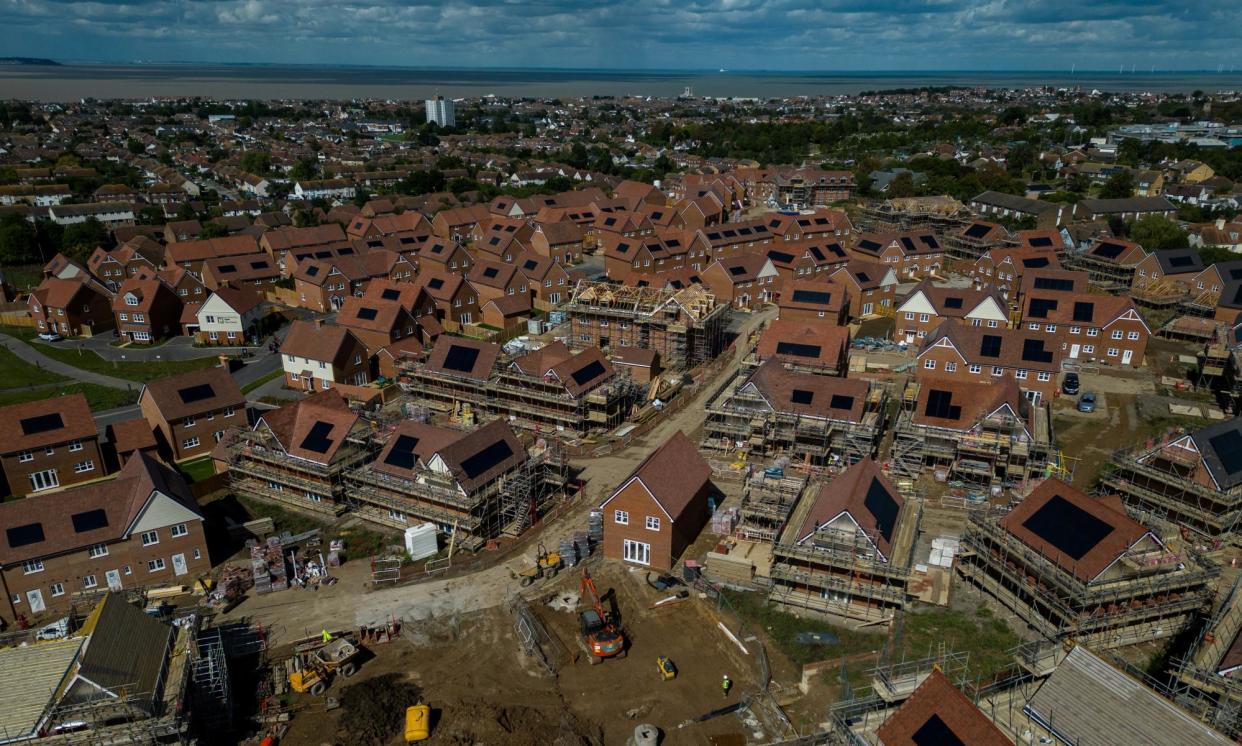Fewer than one in five UK voters are ‘hard nimbys’, finds survey

Fewer than one in five voters are “hard nimbys” who are opposed to local housebuilding under almost any circumstances, according to polling by YouGov that will give a boost to the government in its aim of building 1.5m homes this parliament.
An MRP model based on a 12,000-person survey shows between 15% and 20% of British voters would almost never support housing developments near them, with the rest willing to do so if certain conditions are met.
The findings bolster the government’s case for major planning reform, which the ministers argue is needed to override the objections of a vocal minority who have obstructed new housebuilding projects for years.
Jack Shaw, a senior adviser at Labour Together, said: “Although the voices against housebuilding are vocal, our analysis is clear – only a small proportion of voters are wholly hostile to housebuilding.
“While the specific details of local housebuilding projects will be contested, principled support for housebuilding should give the government confidence to pursue a laser-like focus on building 1.5m homes over the parliament.”
The prime minister, Keir Starmer, has put new housebuilding at the heart of his growth agenda, promising to rip up the planning system in a push to match the previous government’s target of building 300,000 new homes a year – a target that was never met.
Starmer has promised to get new developments going even if it means building on green belt land, attracting anger from senior Conservatives and concern among some in Labour about the impact on their local support.
Labour has already reintroduced compulsory housebuilding targets for local authorities and is planning a series of other measures, including making it easier for public bodies to issue compulsory purchase orders and simplifying the planning process for major infrastructure projects.
Some newly elected Labour MPs have formed pro-housebuilding groups within parliament in an effort to make sure the prime minister sticks to the agenda even in the face of local opposition.
As part of that agenda, the Starmerite thinktank Labour Together commissioned the MRP model and a separate poll of 2,000 people, both by YouGov.
The MRP found that the one condition that made the biggest difference to local support for housebuilding was whether there would be sufficient provision of GPs and other health services.
The 2,000-person poll, which asked slightly different questions, found that the argument most people found persuasive in favour of new developments was that young people needed help getting on the housing ladder. This was particularly true of voters who switched from the Conservatives to Labour at the last election, 39% of whom said it was the most convincing argument.
The poll also breaks down which groups are the most opposed to housebuilding near them. It found nimbyism depends heavily on age, with 83% of people aged 18-24 saying they were persuaded by at least one argument in favour of new housing, compared with 52% of those aged 65 and older.
Scottish people are less likely to be nimbys, the poll found, as are those in London. The most likely are those who live in other parts of the south of England. People who voted leave in the 2016 EU referendum are roughly twice as likely to be nimbys as those who voted remain.
But if a minority of voters are “hard nimbys”, almost none are “hard yimbys”, those supportive of local housebuilding under almost any circumstance. YouGov found that between 1% and 5% of voters could be classified in this way, suggesting those pushing for new developments will have to work hard to persuade communities of their benefits.
Christabel Cooper, the director of research at Labour Together, said: “The housing debate is usually portrayed as a conflict between a majority of people who don’t want to build housing in their local area and a minority who do. Our new research moves us beyond this binary framing and clearly shows that there is a large majority in every single constituency who are open to local housebuilding under the right circumstances.”


